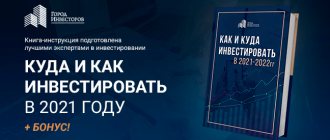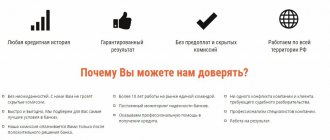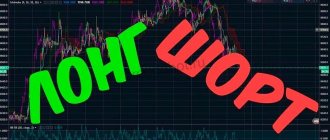Many who come to the stock market as an investor or an independent trader, sooner or later, have a question: what does it take to become a professional from an amateur, how to become a broker?
Often, clients making investment decisions find it attractive that no matter what happens to their accounts, whether they make a profit or a loss, the broker still remains in the black - due to his constant commission. In this regard, from the outside he looks like... a croupier in a casino, where everyone takes risks, and the owner of the gaming table wins in any case. But is this really so? Let's try to figure it out
Short description
Individuals and legal entities applying or hiring brokers choose specialists who have secondary or higher financial education. Conventionally, all brokers can be divided into 5 groups:
- insurance. They work in the insurance industry, acting as intermediaries between clients and specialized companies. A specialist is involved in the work to save time and effort; he often assists the customer in collecting documents and receiving payments for an insured event;
- customs. They work with individuals and companies, resolving all issues related to customs authorities. Professional responsibilities are similar to those of a customs declarant;
- freight Specializes in transactions and cargo transported by sea;
- stock exchange He specializes in concluding agreements on the securities market, because access to such traces is closed to other people. A broker can represent the client’s interests and advise him;
- mortgage. A young line of activity, brokers working in this area act as intermediaries between buyers, banks and property owners. They help the client choose the most advantageous offer, participate in completing the transaction and perform other tasks.
There are many types of brokers, because they can deal with real estate, cars, loans and other transactions. To work in this area you must obtain a license.
How to open a brokerage account
Opening an account with a broker is a fairly simple procedure; for this you will need a passport, possibly an INN, depending on the broker.
How to open a brokerage account in Sberbank-online.
How to open a brokerage account with a Tinkoff broker.
How to open a brokerage account with broker Finam.
How to open a brokerage account with the broker Kit-Finance.
Here are the main options: two options:
Option 1
In the first case, you will have to personally visit the broker’s office, fill out the necessary documents, clarify questions of interest, after which you sign an agreement. The broker must give you access to your personal account and trading terminal.
The advantage of this option is that you will be able to understand the tariffs at the broker’s office and receive the necessary comments.
Important! You can open a regular brokerage account, or you can open an individual investment account (IIA).
Option 2
In the second case, you can open an account online.
You won’t have to travel anywhere, but you will have to figure out the tariffs yourself.
If the broker has good consulting and technical support, then this will not be a problem.
I also want to touch on the issue of security when working with a broker. Many people fear for the safety of their securities and abuses on the part of the broker.
I would like to remind you that a broker is an intermediary between you and the exchange, so the shares you purchase are stored as records in the depository.
Therefore, even if the broker’s license is revoked, the securities will remain yours; you just have to find a new broker.
Features of the profession
The brokerage market appeared in the CIS countries relatively recently, but the work of these specialists is already fully regulated by law. A broker can be an individual, but most often he works for a company that provides brokerage services to clients. He receives either a fixed salary or a commission, the amount of which depends on the amount of the transaction. Let's consider the main responsibilities of this specialist:
- engages in the purchase and sale of goods at auctions, domestic and foreign markets;
- specializes in the purchase and sale of securities, documents, currency, services;
- establishes business contacts between the parties to the transaction;
- selects the best offers, guarantees sale or purchase on the most favorable terms;
- collects and prepares data for auction catalogs, negotiates with the client on price, terms, and other terms of the transaction;
- ensures the preparation and transportation of goods, calculates the cost, coordinates it with the client;
- resolves all issues related to customs clearance;
- deals with paperwork;
- analyzes transactions, performs settlement operations;
- provides advice to clients.
Exchange trading options
You will carry out all trading operations through a broker, giving him the appropriate instructions. There are several ways to submit such an application, let's look at them:
1. By phone
When you call the broker, you give the code word you assigned when signing the contract. This way the broker will be able to identify you. Then you will tell the operator the name of the securities and the quantity you want to purchase. Next, you name the price at which the order should be executed or indicate that the transaction should be carried out at the market price that exists at the moment.
2. Using a mobile application or personal account
There is nothing complicated here; you need to choose the name of the securities, quantity and cost. At a market price, the transaction will be executed immediately; if at a non-market price, then you will wait until the price reaches the required values.
3. Using a trading terminal
I like this option the most. There is nothing to say about telephone trading - this is the last century. It can be left as a backup channel. For example, when the Internet is turned off.
My working Quik trading terminal
Read how to set up trading through a terminal with the most popular broker of Sberbank here.
Sometimes it happens!
Personally, I don’t really like trading through mobile applications.
I think that the functionality there is quite limited, and the applications themselves can be unstable.
A trading terminal is a completely different matter!
I've been using Quik since the beginning and I'm quite happy with it. The only difficulty is to bring all actions to automaticity, so as not to frantically remember how to give this or that command.
Trading on a demo account helps with this!
You can work everything out without risking your money. In addition, some brokers offer free classes on how to use terminals. If there is a need for this, then you can take advantage of this offer.
Important! In any case, the choice of trading option is yours; try different ones and settle on the one that will be more convenient for you personally.
Pros and cons of the profession
pros
- Highly paid job, bonuses.
- The opportunity to make acquaintances with famous and influential people.
- Work for a company or for yourself.
- Trust from clients will bring new orders to the broker.
- A good start for young financiers.
- Constant self-development, the opportunity to learn and change the direction of activity.
Minuses
- Unstable wages, especially if the broker works for himself and not for the company.
- Long working hours, a significant number of stressful situations.
- It is necessary to constantly monitor changes in legislation.
- Business trips to different cities and countries for an indefinite period.
Responsibility
As for the responsibility of NAAB owners to clients, it is minimal. They do not bear any responsibility for the wrong steps of their clients, and if they refuse their services during training, they receive a decent amount. The offer notes that the course will be sent out four days after full payment, and you can cancel the course only within 7 days from the date of the same payment. This way, the company's client will only have three days to understand how valuable the course is for them and whether it is worth starting. There is also another “pitfall” - even if the client decides to return the course back, the training organizers keep 10,000 rubles from the payment, which allegedly goes towards postage costs, office rent (apparently, the apartment in which David Rizaev is registered), office and etc.
Broker training
This profession is chosen by economists, financiers, lawyers and other specialists who can work with numbers and know the law. Employers often give preference to people who have higher education in the following specialties:
- "Financial management";
- "Economy";
- "Crisis management";
- “Customs payments and currency regulation.”
Students entering the university take an exam in Russian and foreign languages, social studies, and if the profession is related to finance, then mathematics. You can choose to study at a college by applying to major in Finance or Commerce. When finding a job, it will be a plus to take courses in foreign economic activity, brokerage services, jurisprudence, and a foreign language.
Courses
TC BCS "Broker"
A huge selection of courses for experienced and inexperienced brokers who want to gain new knowledge about this popular profession. The training center offers students access to seminars, webinars, personal lessons, and some lectures can be listened to for free. Classes are held in many cities of Russia, courses are divided according to levels of training and price.
Russian School of Management
An excellent school for people who want to improve their knowledge in the field of finance, foreign trade, and law. Future brokers will be able to attend seminars, mastering the basics of economics, legal aspects of work, risk management systems, and gaining other, but no less useful knowledge. Lessons are held in Moscow, St. Petersburg and other large cities, and there is an opportunity to undergo professional retraining.
Colleges
- College of Management and Production.
- Moscow Industrial and Economic College.
- St. Petersburg Financial and Economic College.
- Samara College of Finance and Economics.
- Perm College of Finance and Economics.
Universities
Russian Customs Academy
Customs Affairs (Faculty of Customs Affairs)
Russian economic school
Economics (Russian Economic School)
Moscow State University of Humanities and Economics
Economics (Faculty of Economics, Moscow State University of Economics and Economics)
Diplomatic Academy of the Ministry of Foreign Affairs of the Russian Federation
World Economy (Faculty of World Economy, Diplomatic Academy of the Ministry of Foreign Affairs of the Russian Federation)
Vyatka State University
Economics (Institute of Economics and Management of Vyatka State University)
About the organization
NAAB - stands for National Association of Auction Brokers, legally registered as an individual entrepreneur in the name of its founder - David Viktorovich Rizaev, valid since May 2021, registration took place in Vyborg, Leningrad Region.
The main activity of the NAAB is consulting and training, and seventeen types of auxiliary activities are also indicated. The legal address of the organization is the city of Shlisselburg, Kirov district, Leningrad region (1 May street, no. 12, apt. 14).
At the same time, David Rizaev is the founder of Money in Bankruptcy LLC, whose authorized capital is 20 thousand rubles since 2016 (registration time) has not changed. Type of activity of the LLC – 85.41.9 – Other additional education for children and adults, not included in other groups.
Be that as it may, the organization is small, there are only two owners, they are also the brain center of NAAB - David Rizaev and Pavel Kuksenko, positioning themselves as high-quality lawyers with extensive experience in profitable purchases of objects at bankruptcy auctions. Also among the employees is Konstantin Tikhonov, who works directly with students. There is apparently no staff of managers-supervisors, three employees - the whole company, although the name, undoubtedly, claims to be more. The NAAB has a website and a hotline.
Professional knowledge
- Economics and finance, jurisprudence.
- Fundamentals of trade and economic activity.
- Current legislation in the area in which the broker specializes (Customs Code and others).
- Rules for working with customs (documents, fees, operations, control, etc.).
- English or any other foreign language.
- Stock markets, financial management.
- Investment rules, pricing.
- Features of compiling auction catalogs and preparing information about goods.
- Rules for drawing up documents necessary for concluding transactions and work.
How “kitchen” brokers legally take money from successful clients
It should be understood that a kitchen broker, especially one who has been working on the market for several years, calculates in advance the likelihood of traders appearing who will be able to achieve a permanent income in one way or another and takes action. The easiest way to protect yourself from overly lucky clients is to insert a few small and seemingly harmless clauses into the client agreement. This may be a time limit on the transaction (which is critical for scalpers), a limit on the maximum profit in a transaction, or a maximum withdrawal amount. If a trader even accidentally records a larger profit than provided for in the agreement, he can formally be recognized as a violator and be denied further service by freezing his accounts (that is, taking away the remaining money on deposit).
There are even simpler solutions - to add a clause to the offer providing for the broker’s right to refuse to provide further services to the client at any time without giving reasons. No matter how funny it may seem, a trader who accepts such conditions assigns the broker the right to simply take away his deposit without allowing him to complete a single transaction.
Of course, there is also the reputation factor, and in most cases it is even more serious than the legality of the broker’s actions (most of them are still registered offshore). A large company will not brazenly steal clients’ money - after all, this threatens much greater losses due to the fact that newcomers will prefer competitors with a better reputation.
That is why, before choosing a broker, you must not only carefully (point by point) read the client agreement with all the additions, but also study reviews about this company on the Internet. Moreover, it is often not easy to see the real picture due to, on the one hand, a large number of custom paid reviews from the DC itself, and on the other hand, from the black PR of competitors and simply offended losers who will easily denigrate an honest company, just not to recognize their own errors.











